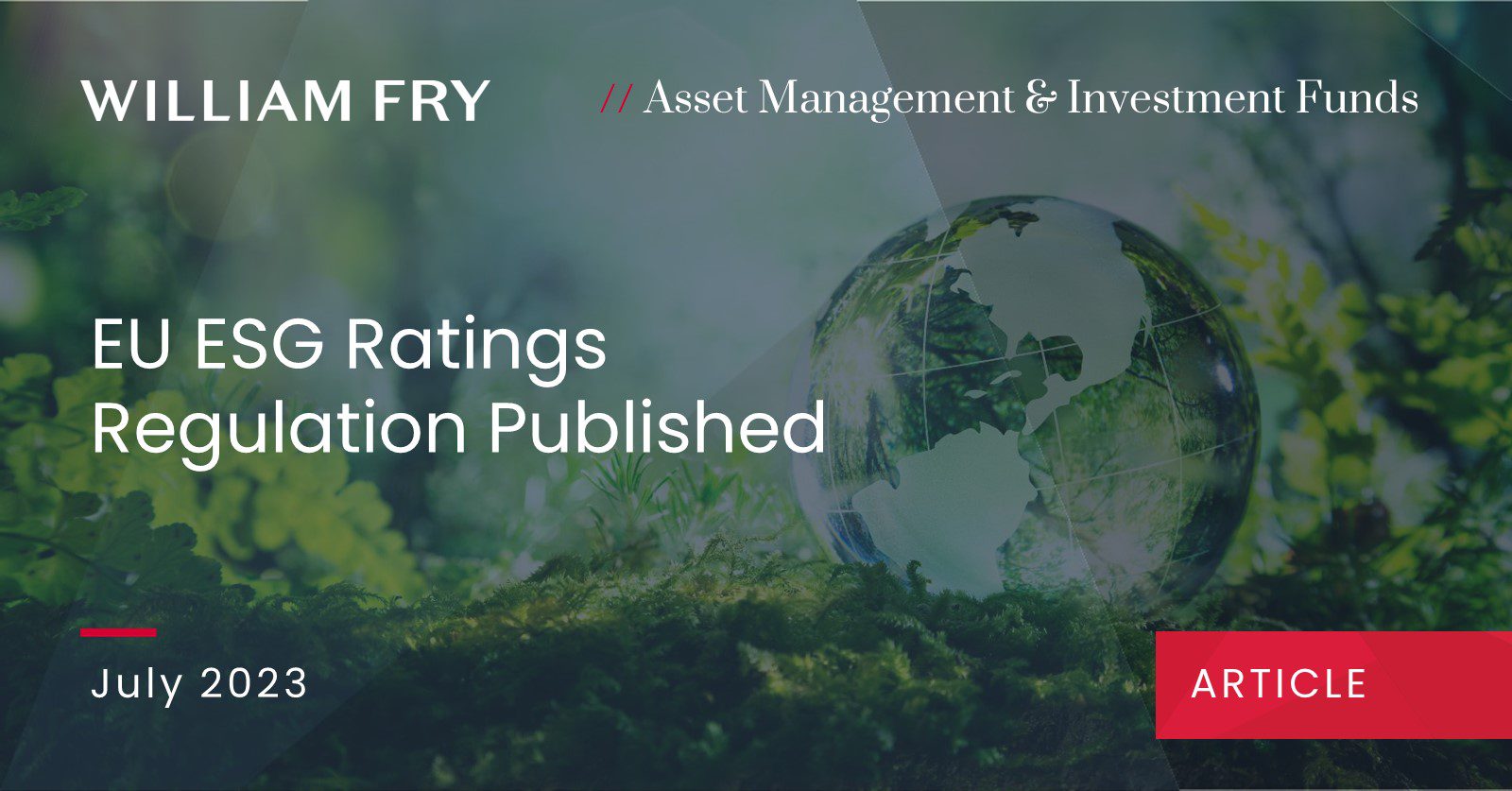Last month saw the publication of yet another extensive and highly impactful EU package of sustainable finance measures.
The package includes a proposal for authorising and regulating EU and non-EU providers of ESG ratings in the EU (ESG Ratings Regulation). Under the proposal, ESG ratings providers would have 6 months to apply for authorisation following entry into force of the ESG Ratings Regulation. SME ESG ratings providers would have 24 months to do so. The ESG Ratings Regulation is under consultation until 29 August 2023.
ESG ratings in scope of the ESG Ratings Regulation
ESG ratings that are disclosed publicly or distributed to EU companies or authorities are in scope of the ESG Ratings Regulation. ESG ratings produced on request, provided exclusively to the relevant person and which are not intended for public disclosure or distribution are not in scope. ESG ratings produced for internal purposes are also out of scope as is ESG data which does not include a rating or scoring element.
Authorisation obligation for ESG ratings providers
EU ESG ratings providers must be authorised by ESMA and the proposal provides for the adoption of delegated measures detailing requirements for the authorisation application.
Borrowing heavily from the third country provisions of the Benchmarks Regulation, the ESG Ratings Regulation permits non-EU ESG ratings providers to operate in the EU if (i) the Commission has issued an equivalence decision in respect of the relevant third country regime, or (ii) the provider is part of a group and has been endorsed by an EU group entity authorised under the ESG Ratings Regulation, or (iii) the provider’s turnover is <€12m for three consecutive years and it has been recognised by ESMA to provide ESG ratings to regulated EU entities.
Ongoing supervision of ESG ratings providers
The ESG Ratings Regulations sets down organisational, governance and transparency requirements for ESG ratings providers, which requirements seek to regulate the provision but not the content of ESG ratings. To guard against conflicts of interest, ESG ratings providers may not also provide consulting activities to investors or companies, issue or sell credit ratings, develop benchmarks, undertake investment, audit, banking, or (re)insurance activities. Other organisational requirements include in respect of resourcing, record-keeping, complaints-handling, conflicts of interest management and outsourcing.
Transparency requirements under the ESG Ratings Regulation mandate the disclosure of methodologies, models, and key rating assumptions as well as the submission of information for inclusion on the European Single Access Point, once developed.
In respect of ESG ratings, methodologies are required to be rigorous, systematic, objective, continuous, of adequate quality and subject to validation. Methodolgies should also be reviewed on an ongoing basis and at least annually.
Sanctions
ESMA will have the power under the ESG Ratings Regulation to investigate ESG ratings providers and to compel an end to an infringement, supply complete and correct information, or to comply with an investigation. Fines of up to 10% of an ESG ratings provider’s net turnover may be levied by ESMA for intentional or negligent infringement of the regulation’s requirements.
Contact Us
If you have any queries on the issues discussed in this article, please get in touch with the key contacts, any member of the Asset Management & Investment Funds team or your usual William Fry contact.



